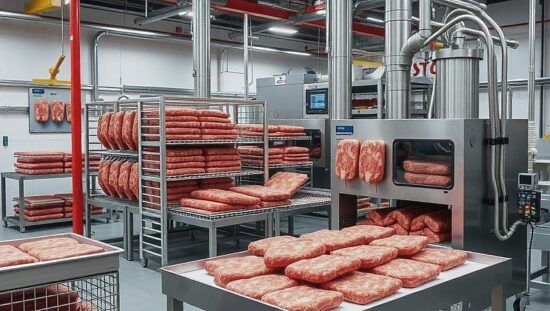German Meat Alternatives See Sustained Growth, While Traditional Meat Production Declines in Germany
According to the Federal Statistical Office (Destatis), the production of vegetarian or vegan meat alternatives in Germany continued to grow in the past year, albeit at a slower pace than in previous years.
In 2024, a total of 126,500 tons of meat substitute products were produced in the country, a 4.0% increase from the 121,600 tons produced in 2023. The value of these products rose by 10.9% to 647.1 million euros in 2024, up from 583.2 million euros in the previous year. Over the past five years, the production of meat substitutes has more than doubled, with a 109.5% increase from the 60,400 tons produced in 2019.
In contrast, the production of traditional meat and meat products in Germany declined by 1.1% in 2024, with a total value of approximately 44.3 billion euros, down from 44.8 billion euros in the previous year. Although the production of meat substitutes is increasing, the production of traditional meat still far outstrips that of alternatives, with a value of nearly 70 times that of meat substitutes in 2024.
Preliminary data from the Federal Ministry of Food and Agriculture (BLE) suggests that the per capita consumption of meat in Germany has risen slightly, with the average person consuming 53.2 kilograms of meat in 2024, up from 52.8 kilograms in 2022 and 52.9 kilograms in 2023. This increase is largely attributed to a rise in the consumption of poultry meat, while the per capita consumption of pork and beef has remained relatively stable over the past two years.





